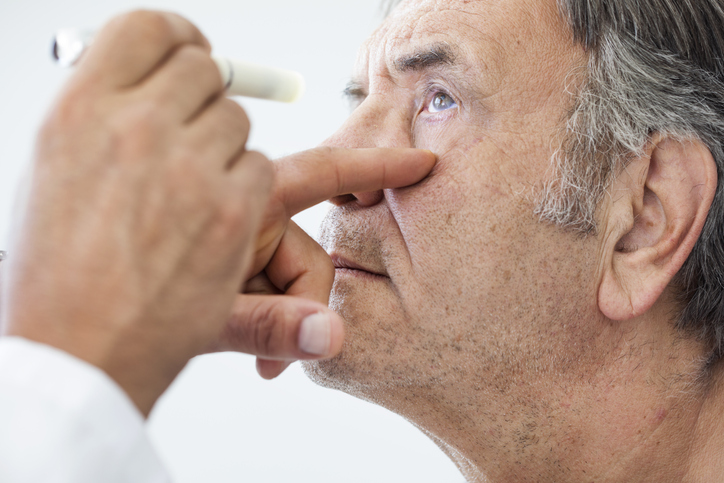Do you have a person with Alzheimer’s in your care and you don’t know exactly what the disease is, its symptoms and care? Don’t worry, because in this article, we will explain what the symptoms of Alzheimer’s are and everything you need to know about this disease.
What is Alzheimer’s?
Alzheimer’s is a neurodegenerative disease that manifests itself as cognitive impairment and behavioral disorders. It is the most common form of dementia in older people and is mainly characterized by the progressive loss of memory and other mental abilities, as nerve cells (neurons) die and different areas of the brain atrophy.
Are there different types of Alzheimer’s?
Yes, there are different types of Alzheimer’s. The best known are early-onset Alzheimer’s, which can begin to appear between the ages of 30 and 60, and late-onset Alzheimer’s, which occurs in people over 65 years of age and is the most common.
Alzheimer’s symptoms in older people
Alzheimer, at its beginning, usually manifests itself with frequent forgetfulness and difficulty remembering recent information, which is often confused with normal aging, these are the first symptoms of Alzheimer’s.
Over time, symptoms become more evident and disabling, including confusion, mood changes, disorientation, difficulty speaking and walking, among others. It is important to note that the symptoms of Alzheimer’s can vary from one person to another.
Phases of Alzheimer’s
There are three general phases in the development of Alzheimer’s disease: initial, moderate and advanced.
- In the initial phase, the person can continue with their normal life even if they experience slight forgetfulness.
- In the moderate stage, symptoms become more noticeable, affecting independence and the ability to perform daily tasks.
- Finally, in the advanced stage, the person requires constant care, as the disease severely affects their ability to communicate and move.
Causes of Alzheimer’s
The causes of Alzheimer’s are not yet fully understood. This disease is believed to be caused by a combination of genetic, environmental, and lifestyle factors that affect the brain over time.
Is Alzheimer’s hereditary?
Most cases of Alzheimer’s are not hereditary. However, in some cases, genetic factors can increase the risk of developing the disease.
Are Alzheimer’s and senile dementia the same?
No, Alzheimer’s and senile dementia are not the same thing, although they are used interchangeably.
- Alzheimer’s is a form of dementia, but not all dementias are Alzheimer’s.
- Dementia is a general term to describe symptoms of impairment in memory, communication, and thinking.
Are there treatments for Alzheimer’s?
Currently, there is no cure for Alzheimer’s. However, there are Alzheimer’s treatment options that can help relieve some of the symptoms and improve the patient’s quality of life.
These treatments may include medications to slow the progression of the disease, improve memory symptoms and treat behavioral changes, as well as non-drug therapies that help manage some of the symptoms of the disorder.
Tips for caring for older people with Alzheimer’s
Caring for a person with Alzheimer’s can be a challenging and emotionally draining task. Here are some tips for caring for an elderly person with this disease:
- Get informed: Knowing the disease and its stages can help you understand what is happening and anticipate changes that may occur.
- Create a safe environment: Alzheimer’s can affect a person’s judgment and perception, which can increase the risk of accidents at home.
- Maintain a routine: Daily routines can give a person with Alzheimer’s a sense of structure, security, and less confusion.
- Encourage communication: Speaking slowly, using gestures, and maintaining eye contact can help the person understand better.
- Self-care: Caring for someone with Alzheimer’s can be exhausting. Make sure you take time for yourself and seek support when you need it.
Alzheimer’s disease can be a challenge for both the person who suffers from it and their loved ones. Although the disease is progressive, medical advances and proper care can help improve patients’ quality of life.






